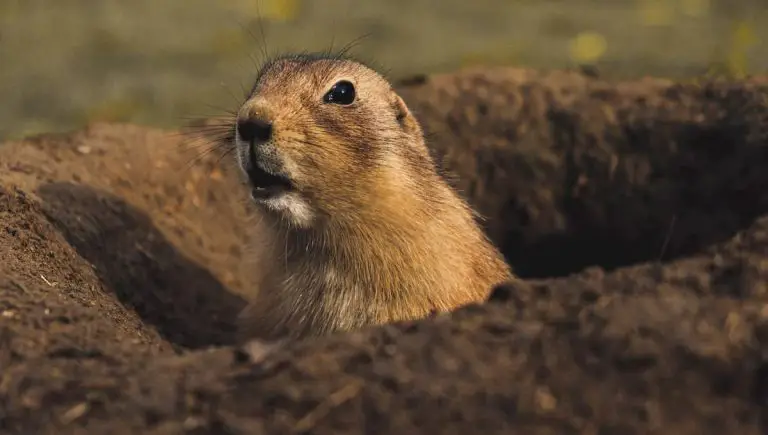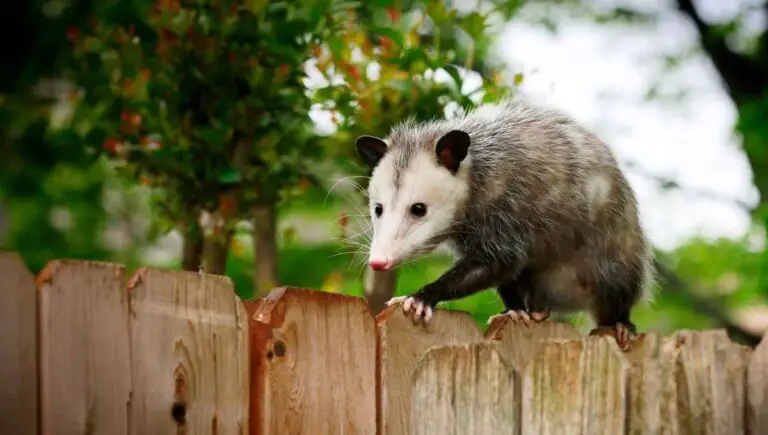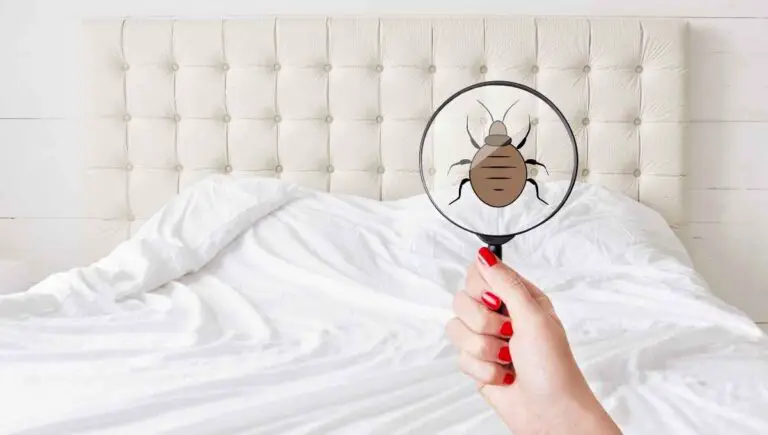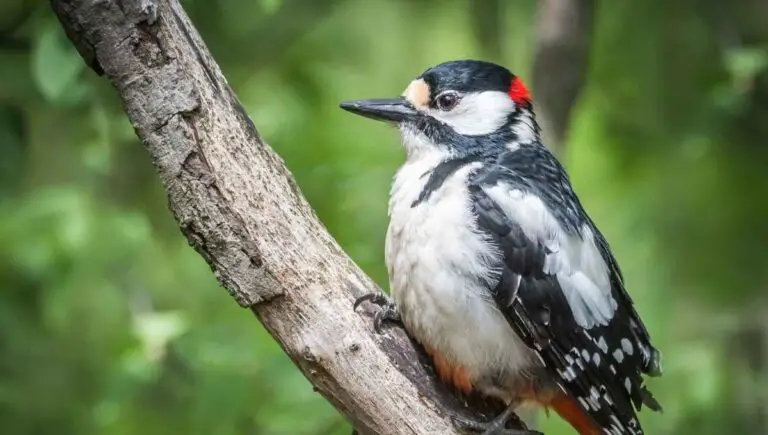10 House Plants That Keep Spiders Away For Good
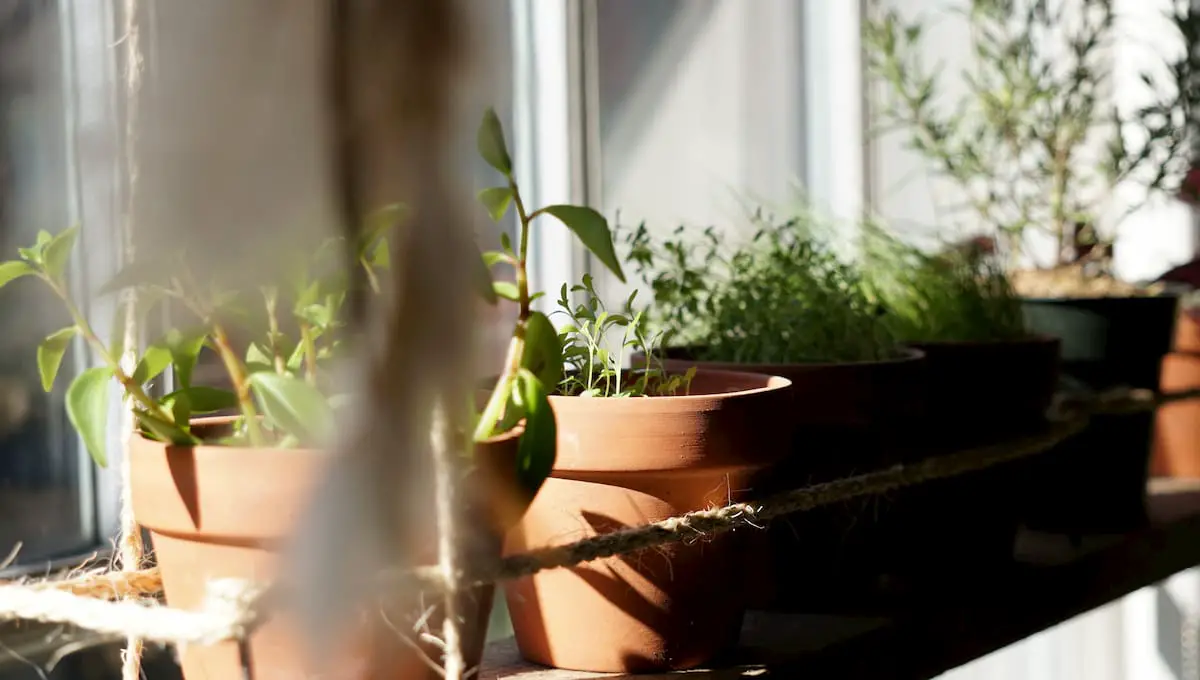
Are you tired of eight-legged foes taking over your home and garden with their messy cobwebs and creepy antics? If you want the cretins out without resorting to harmful pesticides, these are the Top 10 Plants That Keep Spiders Away From Your Home and Garden.
Reduce the number of spiders inhabiting your personal spaces using holistic approaches. That way, not only will your inside areas smell lovely and look colorful, but you can relax knowing that your children and pets aren’t in any danger of drinking poisons and breathing toxic fumes.
Catching spiders is challenging, and killing them (knowing they add value to ecosystems), might weigh on your conscience. Drive them out and prevent them from coming back by investing in plants that repel spiders.
Why Am I Seeing a Spider Migration?
Spiders are no strangers to your homes, but you don’t see as many during warmer seasons. You may notice more of them when it gets colder because spiders often migrate indoors in search of a mate, as well as a safe and warm space to they lay their eggs in time for spring. So, depending on the time of year it is, you may notice an increased number of creepy-crawlers patrolling the walls.
Spiders are also present when there is a surplus of their natural food supply, i.e., other types of pests, such as fruit flies, mosquitoes, and other unwanted bugs. The same applies to your yard and outdoor areas. However, in most cases, spiders prey on insects that destroy your treasured plants, making these tiny hunters the best form of pest control, necessary for a healthy garden.
What Are the Most Effective Spider Repellent Plants?
Spiders are beneficial in our ecosystem, but to a degree. You might want to live in harmony with them, but a house overrun by eight-legged squatters will eventually become unlivable for you and your family.
One fail-proof approach to controlling the number of arachnids dwelling in your home is with plants. Warding off insects with plants isn’t a new practice. Citronella and basil have been used to repel pesky bugs since the dawn of time due to their smells. Generally, the aromatic scents we love are repugnant in the insect kingdom.
Spiders, being no exception, are also sensitive to smells, in particular, strong odors and fragrances. If you want to remove spiders from your home and outdoor areas, do so with powerfully-scented plants. These aromas are a surefire way to stink out a colony of arthropods.
Is it Better to Plant Seeds or Buy Plants That Keep Spiders Away?
The answer depends on the type of person you are. If you’re a DIY person with a penchant for gardening, you might want to plant your seeds and watch them grow. If you’re not, you may require a fully-grown plant that doesn’t need as much attention.
The type of plant or seeds that you buy also depends on how much effort you are willing to give to keep plants alive. For example, mint is the preferred choice of many because it’s low-maintenance and highly effective.
On the other hand, lavender is lovely to have in the home, but it does require an experienced hand because it’s finicky and challenging to keep alive.
Some people choose seeds over plants from a health perspective. For example, basil leaves might be given all the recognition, but it’s the seeds that contain all the nutrients necessary to germinate into a health basil plant.
10 Types of Indoor Plants That Repel Spiders
There are several different types of plants that repel insects and spiders. Some are herbs that help to season a meal; some release fragrances that relax us and mask bad smells, while others look nice and help to spruce up our living spaces with their colors and vibrancy.
There are only advantages to having house plants; they can lift your mood, help you with stress, satisfy your tastebuds and relieve allergy symptoms. These are the top ten house plants that keep spiders away.
Mint
Mint is wonderfully refreshing to humans, helping to keep morning breath at bay and our homes smelling nice. But arachnids don’t share the sentiment. To all spider species, mint is a hard smell in which they can’t stand and don’t want to be around.
Several varieties of mint can be used to deter spiders, but peppermint is the most potent by far. For this reason, peppermint oil is commonly found in natural repellents. If you aren’t keen on using store-bought sprays, however organic they’re claimed to be, mint plants work just as well.
Peppermint plants are ideal for people without green thumbs or don’t have time to garden. They’re low maintenance, grow quickly, and don’t require much attention. Leave it out in indirect sunlight near popular spider hangouts, and remember to water the plant when the soil is dry to the touch.
Buy These Seeds & Plants for your Home or Garden
Organic Indoor Herb Garden Kit by Back to the Roots
Purchase organic seeds to grow your own peppermint plant. Organic seeds, organic soil, biochar, and an Ayesha Curry Recipe Book are included in the price. Learn more here.
LIVE Mint Peppermint Herb Plant
Peppermint plants make the best indoor plants, buy yours (x4) here. Pots not included.
Lemon-balm
Lemon-balm is another type of mint that is popularly used. While repelled by spiders for its lemony scent, the properties of lemon balm are considered mood-boosters.
Words of warning, though, mint plants have the tendency to overgrow, which is a problem of its own when planted in a garden. Prevent this from occurring by splitting the plant into smaller segments, and plant these segments in separate pots.
Buy These Seeds & Plants for your Home or Garden
Herbal Tea Herb Seed Mix
Grow your own medicinal herbal teas – lemon balm, chamomile, anise, rosemary, yarrow, peppermint and more! The price includes seeds, soil, plant markers, planting pots, infuser, and the planter box.
Basil
Humans are obsessed with basil; it adds flavor to a bland meal and is the key ingredient for homemade pesto and Napoletana sauce.
Spiders, on the other hand, and other innumerable bugs, are averse to the herb’s smell because it lets off an intense scent and oil.
You can keep your basil plant on the windowsill of your kitchen, next to the peppermint, within reach of your stove the next time you whip a home cooked meal.
Basil thrives best in warmer conditions – place your plant in direct sunlight for four to five hours every day.
Buy These Seeds & Plants for your Home or Garden
Zen Basil – Edible Basil Seeds
Zen Basil products contain 100% raw basil seeds that are completely organic and free of pesticides.
For more information, click here.
Amazing Creation Stackable Planter Vertical Garden
Do you want a garden filled with basil and other nutritional herb but don’t have the yard space? The five-tiered stack-able planter can hold up to 15 plants in five vertically stacked pots, learn more here.
Lavender
The unmistakable purple plant emits a fragrance we love, but spiders hate.
Generally regarded as a staple in gardens, it is possible to grow lavender indoors if it receives tender, loving care.
Those who are new to gardening might find it challenging to keep lavender alive, but it can thrive granted that the conditions are just right. Good ventilation is required, so open a window if the weather is fine outside, or aerate the plant with a fan. Plenty of sunshine and warmth are also needed for survival. Consider getting a grow light if you want your plant to thrive in winter.
Purchase lavender oil if you keep killing your plants or don’t have the time to keep it alive. Lavender oil is an essential oil that repels spiders naturally with its overpowering scent.
Just like mint, lavender plants can overgrow the pots that they’re planted in. Remember to re-plant segments of the plant, and position them in strategic points around the house in spider-populated areas.
You’ll find spiders hiding in various places when it’s cold, including on the inside of your wardrobe. Keep your clothes spider-free with dried lavender. Pick a few sprigs off your plant, store it in a dark space, and let it dry for two to four weeks before use. Then, place the dried lavender in a spider-occupied cupboard.
Buy These Seeds & Plants for your Home or Garden
Our Earth’s Secrets Lavender Flowers
Buy one ounce of super-grade and natural lavender flower buds here.
The Simlife LED Plant Grow Light Kit
It’s a struggle to grow lavender, especially in winter. The Simlife LED Plant Grow Light Kit uses an artificial lighting system to help this purple perennial with photosynthesis. Learn more here.
Citronella
Citronella is one of those plants that spiders hate.
Also referred to as lemongrass, the properties of these plants are used in insect repellents to remove unwanted pests, typically mosquitos on the hunt for human blood.
That said, the lemony-scented plant is not well-liked by our arachnid foes either.
Citronella grows in abundance in the outdoors but is a seasonal plant that doesn’t last in cold conditions. If you live in a cooler climate, it’s better to grow citronella indoors when the temperatures drop below freezing.
Buy These Seeds & Plants for your Home or Garden
Dongdongole Garden (100pcs Rare Geranium Seeds)
Repel various pests with the sweet scent of geranium and citronella. Click here to find out more.
Lioder Citronella Plant Seeds Mozzie Buster
This pleasant citrus-scented plant repels mosquitoes, spiders and other types of pests. Don’t delay, buy today.
Sage
Sage plant is a pretty plant to have around the house and can add personality to lounge, bedrooms, and areas where you entertain. It also lets off a pleasant smell that reduces the need for air fresheners.
Yet, while the aroma might be favorable to you, arachnids are turned off by the smell.
Burning sage, used to ward off evil spirits and clear out negative energies, can also disperse an army of spiders. However, before you burn the leaves of the plant, make sure that they’re dry. Wet leaves burn more smoke than anything else, which, as you might know, releases carbon monoxide into the air, a toxin that is harmful to our health.
Buy These Seeds & Plants for your Home or Garden
Culinary Herb Seeds Garden Collection (deluxe)
All your kitchen favorites; sage, cilantro, oregano and more!
Windowsill Herb Planter Pots (set of three)
Stylish, high-quality pots for all your herbal plants and cacti. Get them here!
Rosemary
If you like to cook steak, you may have noticed that flies are less likely to land on your uncooked meat if your sprinkle rosemary on top. Similar to flies, spiders can’t stand the smell of rosemary.
We use rosemary for cooking, so you might find it useful to keep a plant in the kitchen. That said, rosemary thrives in the garden, as well as indoors, so plant it wherever it’s convenient for you.
The herb thrives best in warmer climates, so if you live in a cold place, rosemary plants might not be the most effective year-round spider repellent plant for you.
Buy These Seeds & Plants for your Home or Garden
Seed Needs, Rosemary Culinary Herb (Rosemarinus officinalis)
2x 100 packs of quality, non-GMO rosemary seeds available here.
LIVE Rosemary Herb Plant
Create your own herb garden, starting with a real rosemary plant.
Chives
Chives are excellent for garnishes but can also be used to keep away unwanted garden and household pests. Chives form part of the lily family, which makes them pretty to look at and easy to grow. The color of the chives’ flower in full bloom is a lovely purple. Also interesting to note, the flower is edible and is often used in French cuisine.
Buy These Seeds & Plants for your Home or Garden
Indoor Herb Garden Kit
Grow your favorite herbs with this easy-to-use startup kit that’s perfect for beginners. Includes pots, seeds, soil pellets, markers, and an instructional booklet. Learn more here.
Two Chives Garlic Live Plants Herb Plant
Add chive plants to your growing garden, buy them here.
Eucalyptus
The oils secreted by Eucalyptus trees are disliked by a wide variety of pests, such as ticks, flies, and our dreaded spider foes. While an overpowering smell for arachnids and insects, Eucalyptus leaves contain anti-inflammatory properties that are useful in treating specific skin conditions, including bites and stings.
It’s useful to have around the house for the above reasons. However, if you do happen to use Eucalyptus as an ointment, dilute the oil in water first before applying the solution to affected areas of the skin.
Buy These Seeds & Plants for your Home or Garden
Houteen Blue Eucalyptus Seeds HousePlant
Grow your own eucalyptus from scratch; choose between 10, 30, 50 or 100 seeds here.
Catnip
You might not eat catnip, but your cat goes crazy for it. Using catnip as a deterrence will put to bed your concerns about your too-curious feline eating or licking something they shouldn’t.
Be mindful of sprinkling catnip outdoors because you don’t want to be visited by a colony of stray cats either!
Buy These Seeds & Plants for your Home or Garden
Cat Grass Seeds by Perfect Plants (1lb)
Relax your pet with one pound of chemical-free, fast-growing catnip seeds. For domesticated feline only.
Pop Up Cat Grass Kit (3 Pack)
An organic snack your pet will love. Easy to grow and store. Soil in the bag included.
Aside from Plants That Spiders Hate, Are There Flowers That Remove Spiders?
Colorful flowers might be aesthetically pleasing, but some species do more than liven up a room. Chrysanthemums and various citrus flowers contain chemical compounds that spiders find revolting.
In particular, pyrethrum is an organic compound that is derived from Chrysanthemums and is an active ingredient found in various commercial insecticides that are fatal to multiple pests.
Planting them in your garden or placing bouquets of cut Chrysanthemums in vases in the house drives away a spider’s prey, which in turn forces a spider to find alternative hunting spots.
About this flower, it’s important to note that only the petals repel insects and not the rest of the plant. Prune the flower by removing dying petals; this will allow the plant to blossom faster and continue to act as a natural insect repellent.
Where Should I Position House Plants That Repel Spiders
In previous articles, we’ve mentioned that spiders thrive in conditions that are dark and out-of-the-reach of humans; these include nooks and crannies. They lie in these quiet corners, waiting for the arrival of their prey.
With this in mind, position your chosen plants near to popular hangouts. The plant’s stench will eventually become intolerable to them, and they’ll soon move on. For the best possible result, take a proactive approach to remove spiders, by occasionally crushing leaves and leaving its remnants near spider nests. The potent smell will hasten your uninvited guest’s departure quicker than you know it!
It’s not a bad idea to place a variety of plants in different rooms to see which ones work best in repelling the species of arachnids currently living in your home, especially if you’re a self-proclaimed arachnophobe who can’t stand the sight of spiders.
There’s no harm in owning multiple indoor plants, not only are they not dangerous to humans, but many of the ones listed contained medicinal properties that are beneficial to humans. Just remember to keep them alive with enough water and sunlight.
Messy cobwebs are often spun on the ceilings, which are hard to reach without a ladder and difficult to destroy what with a spider living in it. To remove the spider from its web, place a hanging plant near to the area – it will soon vacate the premises.
The above tips help to drive out uninvited home invaders. But where can you place plants to prevent arachnids from entering inside? Placing pot plants near window sills, doorways, and on decks will have these fanged creatures crawling in the opposite direction.
What Plants Should I Grow in the GardenThat Keep Spiders Away?
Contrary to popular opinion, spiders are an asset to gardens, but there are species of arachnid, closely related to spiders that are known plant-killers.
Spider mites are dreaded pests and every gardener’s worst nightmare. They’re vicious and can annihilate a crop of plants in a short period by cutting off their life-support system.
You’ll notice that your plants are under attack by the thousands of punctures on its leaves, and if you do identify the signs, you’ll need to act fast. An uncontrolled infestation of mites can destroy a seemingly healthy-looking plant in as little as two days.
Prepare for the worst by planting onion or garlic ahead of an invasion. The pungent smell of these vegetables, which we love to cook with, prevents these destructive arachnids from nibbling your treasured plants.
Let nature take care of the issue by allowing spiders in your garden. Not only is it an effective form of damage control, but it’s evidently more environmentally-friendly than spraying your plants with insecticide.
Recap: Controlling Your Pest Infestation with House Plants That Keep Spiders Away
It’s natural to want to kill a spider when you encounter one, but the truth is that they’re benevolent creatures who probably won’t do you much harm. Instead of destroying these pest controllers, why not find sustainable ways to remove them from your garden and home?
There are many house plants that keep spiders away while adding a personal touch and homey, pleasant smell to your living quarters. There are a variety of spider repellent plants that:
- Replace the need for insecticides, which can be harmful to your family, pets, and the environment. Have peace of mind knowing that your children and dogs aren’t in any danger of ingesting or swallowing dangerous, possibly life-threatening chemicals.
- The types of plants that scare off spiders are sure to surprise and fascinate you. From edible herbs, such as basil and rosemary, and sweet-smelling lavender and medicinal eucalyptus plants, to cat-loving catnip and more, there’s a lot from which to choose.
- Not just plants, organic compounds found in flowers can also drive away insects, which forces spiders to search for food elsewhere. Placing a bunch of pretty flowers in our home is one way to keep a pest-free home.
- Where you position your plants is essential; they require optimal sunlight but also need to be strategically placed in corners where there are spiders. You can also play an active role by rubbing a plant’s leave between your fingers and spreading the juices in the cracks and crevices where spiders are found.
- Surf Amazon to find the best products online. We’ve included some of Amazon recommendations for seeds and plants, rated four stars and above by satisfied customers.
- Spiders are frightful but do remove unwanted pests in the home and garden? Frustrated by spider mites killing your plant population? Mites or red spiders are prey for the average arachnid. If that’s not an option, plant onion, and garlic smell – the strong smell is unfavorable to the killer pests.


